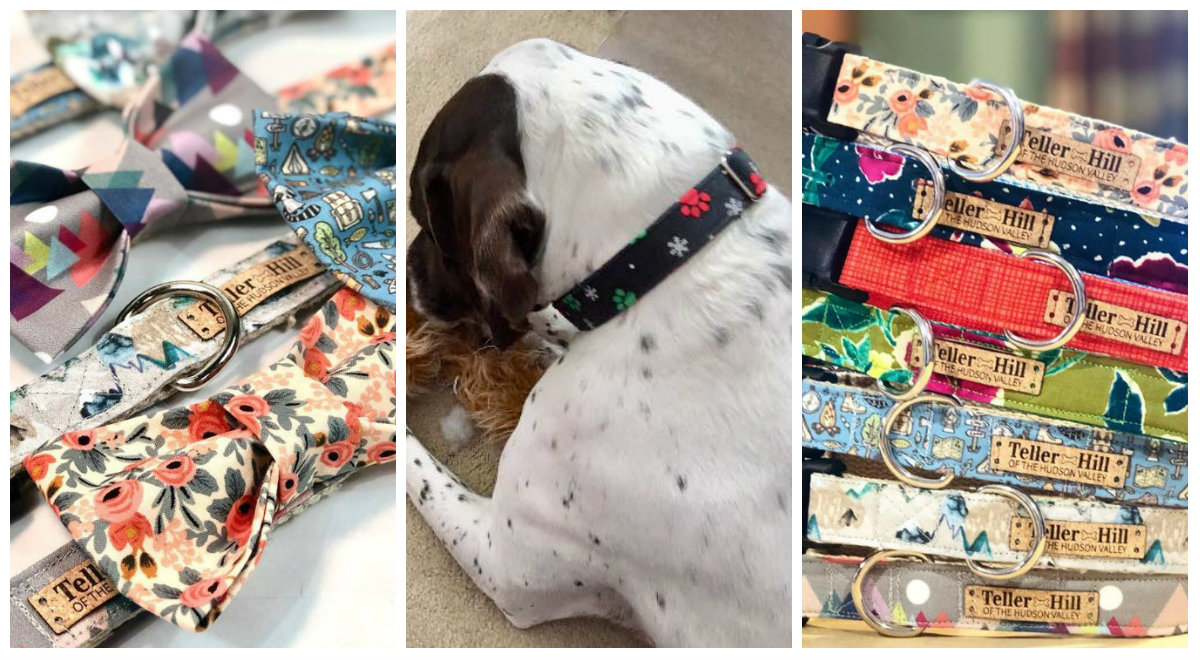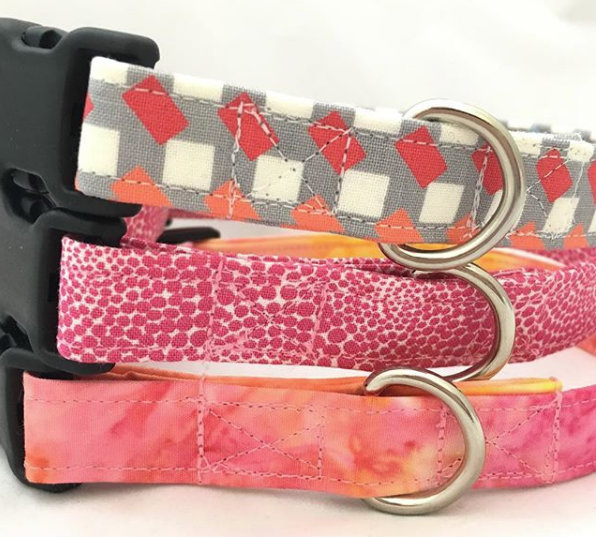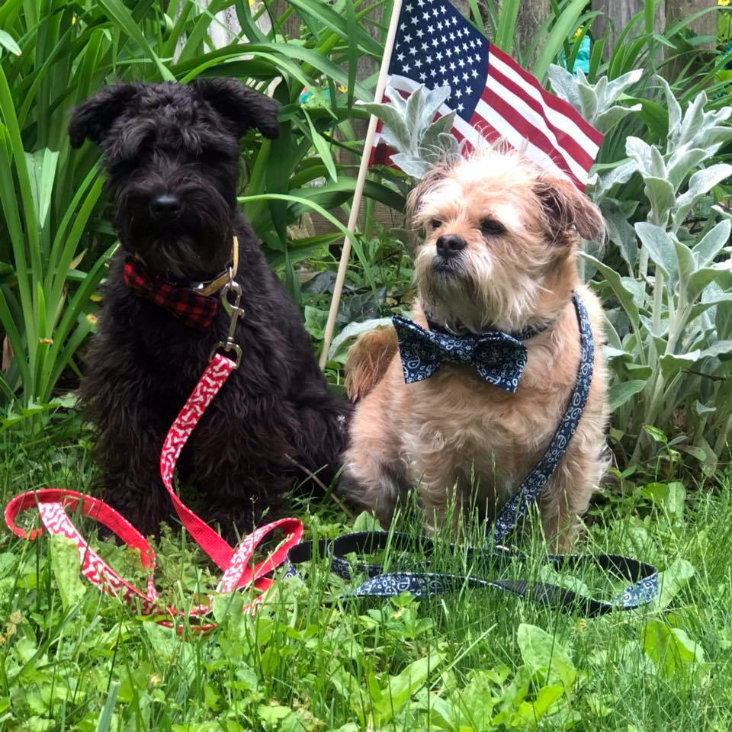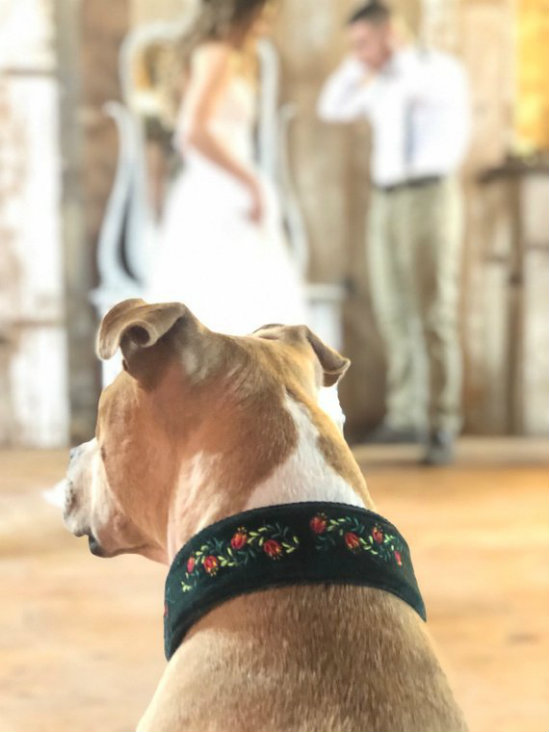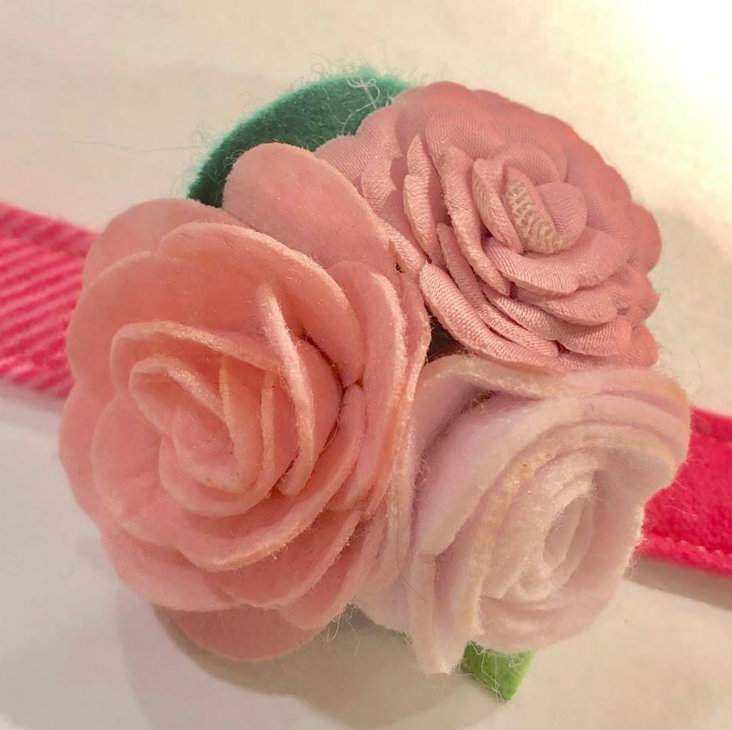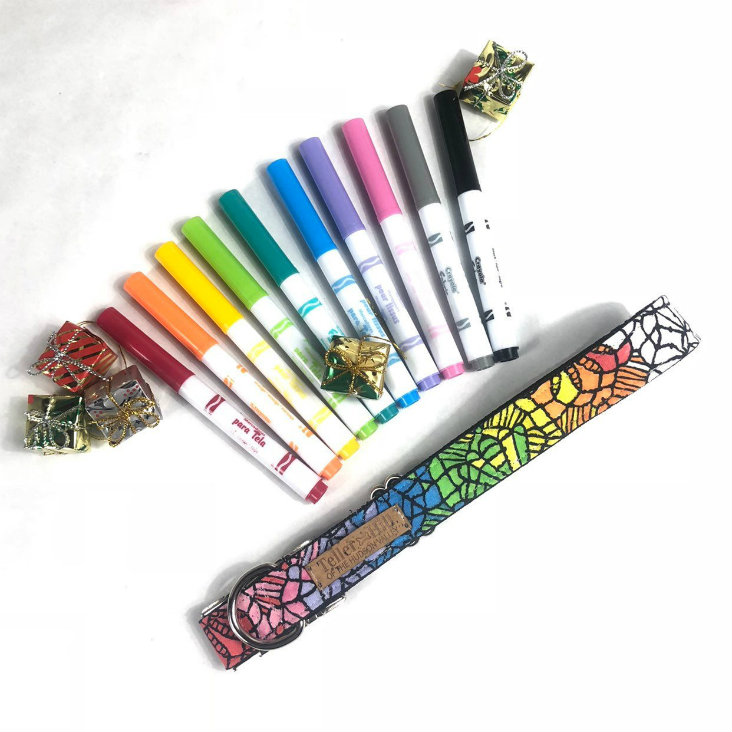Teller Hill of Hyde Park: The Stylin' Way to take your dog on an eco-friendly walk
Hey, good looking (we're talking to your dog). Is that a Teller Hill collar you're wearing?

Hey, good looking (we're talking to your dog). Is that a Teller Hill collar you're wearing?
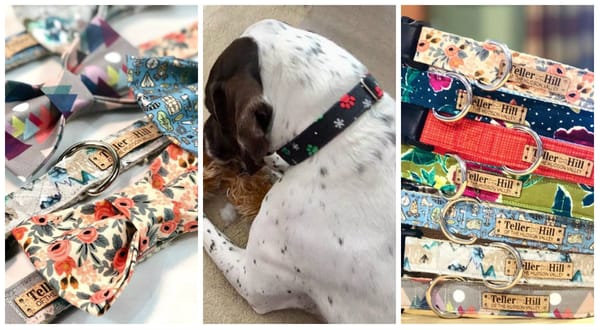
This is your regularly scheduled break against the onslaught of distressing news. If you love dogs, you’ll be especially interested. If you’re a fan of beautiful vintage fabrics, or someone in favor of environmentally friendly products, you’ll be pleased. If you’re inclined to champion a local mother-daughter business, there might be some shopping in your future.
Teller Hill — “beautiful, sustainable slow fashion for dogs” — is Jane Ertman (the mom) and Tory Kane (the daughter), who make dog collars, leashes, bow ties and corsages by hand using vintage fabrics, hemp webbing and reusable hardware.
“We’re sort of fabricholics,” says Kane. “We work hard to get unique, interesting fabrics. “
Which they do, while keeping to their mission to be as earth-friendly as possible. One of their sources is Fabscrap, a textile reuse and recycling resource that takes bolt ends from design houses, fabrics that would have otherwise gone into the waste stream. Teller Hill also relies on online fabric swaps.
Underneath the delightful collar fabric is hemp webbing.
“We realized how much plastic the normal collars puts out into the world,” says Kane. “We started to look for alternatives, because dog safety is important, and the webbing has to be strong enough. We settled on hemp, which is a bit more expensive, but we think it’s worth it in terms of environmental friendliness."
Alas, they couldn’t find an alternative for the plastic or aluminum buckles. But they came up with a Hardware Rescue Program, their way of keeping some of that out of the landfill. When Teller Hill customers are ready to retire one of the collars, they can send it back and receive 15-percent off their next purchase, and the hardware gets reused.
Keeping dogs and humans away from toxins in the environment has personal resonance for the duo. In 2015, Ertman’s husband of more than 50 years passed from cancer; two weeks later, they lost their dog, Pete, also from cancer.
“We knew that toxins in our environment contributed to the cancers that had taken our family members too soon,” they write on their website. “We were, and are, determined to reduce this exposure for pets and their people that others won’t have to suffer the same heartaches.”
Lifelong sewing enthusiasts, mother and daughter always had wanted to have a business together. After the double loss, they found themselves with space in their lives.
“I was an empty nester, and mom was living with us in Hyde Park,” says Kane. “The moment was right.”
They began making dolls, a fabric take on the rounded Russian matryoshka dolls. But doing a children’s product was problematic: there are federal regulations around safety that make it extremely difficult for a small business owner to do a children’s line, they explain. Paying for all the testing is expensive and makes a product that much more expensive. Still, they were doing okay, learning a lot about running a business.
But Waldo changed their trajectory. They adopted the rough red Brussels Griffon, and started making apparel for him. He accompanied them to craft fairs and, forget the dolls, people wanted what he was wearing.
“He’s a good dog to dress up,” Kane says. “We began making bandannas, coats, collars and bow ties.” Collars proved to be the most popular.
Both mother and daughter have known their way around a sewing machine since, well, forever.
“I taught Tory to sew when she was three,” Ertman says. “When I think about it now, I might not have taught a three-year-old to work a sewing machine.”
Kane, a school nurse, was quick to give credit to her mother. “My mom is modest, but she’s an incredible fiber artist,” she says. “When I was growing up outside New Haven, the school didn’t have a great art program. Mom and a friend bought an old school bus, took out the seats, laid carpet down and loaded it up with art supplies. They rolled from school to school doing art projects. That’s how the preschool program at the Children’s Museum got started,” which Ertman ran for 25 years.
Teller Hill (named after a hill commemorating a founding Hyde Park family — because “all of the Roosevelt names were taken,” Ertman says) sells its products mainly through Etsy and at craft fairs (look for them at the Country Living Fair in Rhinebeck this spring), and some regional retailers, including Pause Dog Boutique in Red Hook.
There’s a lot more inventory than what they show at craft fairs or list online. Teller Hill is happy to source fabrics if a customer requests a certain theme or pattern. Custom wedding collars for canines are big sellers. Sometimes the duo comes across fabric that inspires them to expand their line.
“We found matzoh fabric that was so fabulous we had to make matzoh ball bowties, collars and squeaky toys,” says Kane. New to the line is a “color your own” fabric collar that comes with nontoxic fabric markets that appeals to the grownup coloring book market.
Teller Hill makes dog accessories that are bright and colorful, that do good while your dog looks good. And, as promised, there's your good news for the day.
